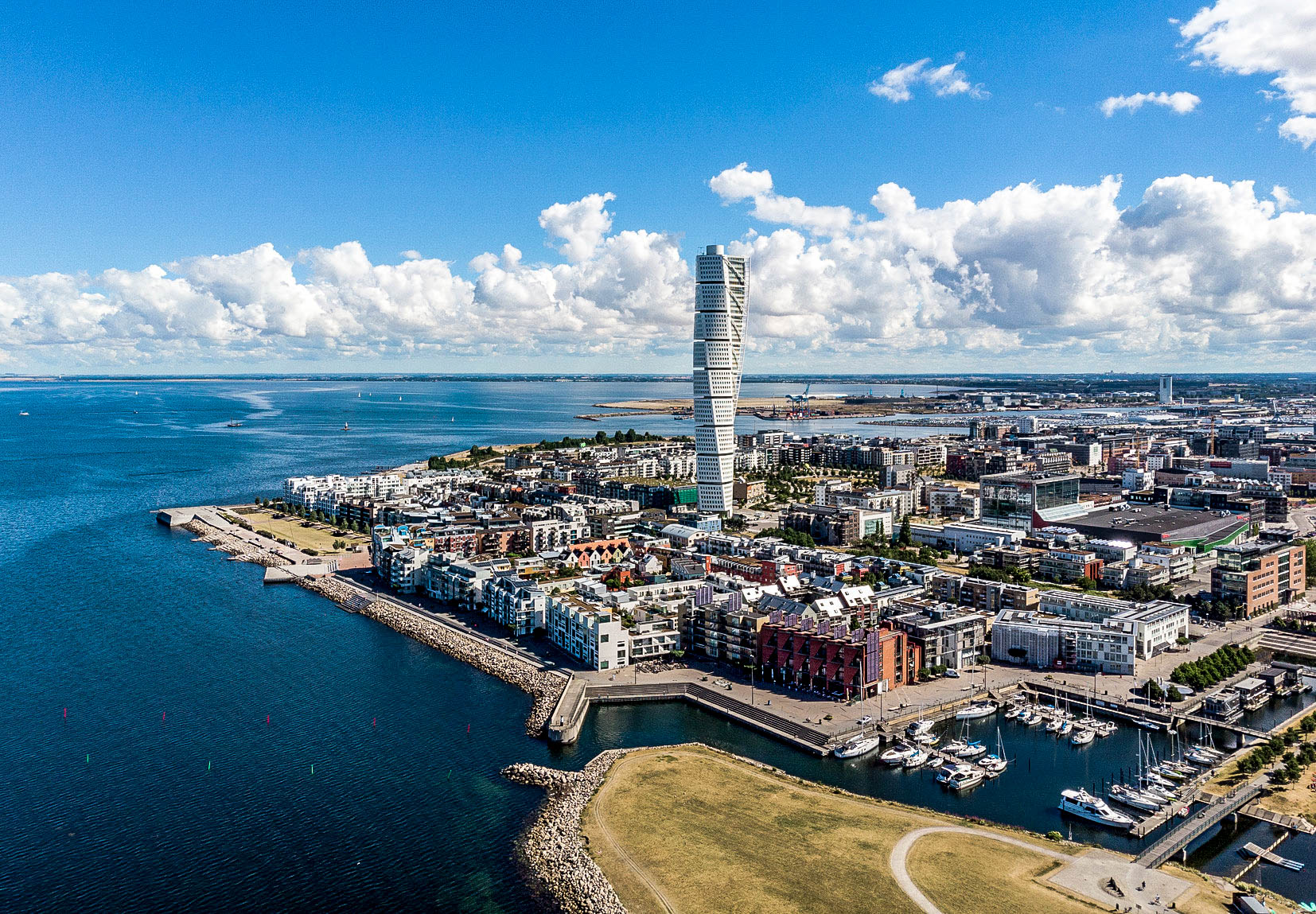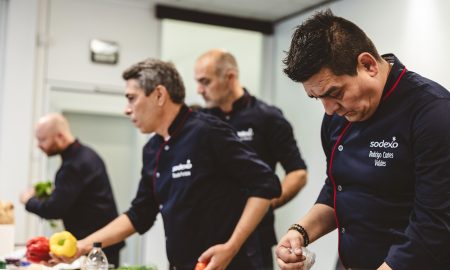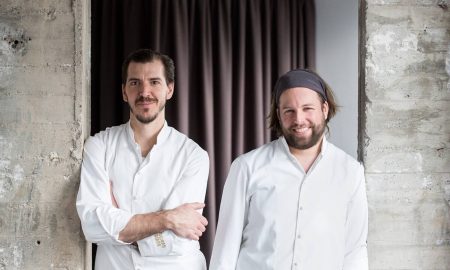Career Jumpers Welcome
It’s halfway between an industrial flyover city and a cultural Renaissance hub, but look more closely and you’ll discover a burgeoning tourism mini-metropolis at Sweden’s southern tip. Just 28 kilometers from the culinary mecca of Copenhagen, Malmö is a livable and lovable city in its own right. German emigrant Nicole Titze has discovered that for herself, and she’s learned a lot about how to interact with the Swedish.
For many years, Malmö had a reputation as a place tourists drove through on the way to somewhere else. Being located directly on the Öresund made it a perfect location for business and industry, but it wasn’t exactly known for its tourist-friendly weather. “In summer the temperature rarely gets above 70 here,” Titze explains, “and there’s always a stiff breeze blowing through the city.” Titze has been living in Malmö for ten years now, and recently started working as a reservation coordinator at the Hotel Duxiana. Before that, although she was living in the city with her Swedish husband (the reason she decided to leave Germany), she worked in Copenhagen. As Titze says, “A lot of people in Malmö commute across the Öresundsbron Bridge to Copenhagen to work. That’s where I found my first job, too. As of December, though, I’ve officially arrived in Malmö.” Working at the 22-room Hotel Duxiana, she finds herself noticing again and again how different Swedes are from Danes—and from Germans. “There are hardly any hierarchies here. After studying in Düsseldorf, I wasn’t used to that at all. I started my career as a trained hotel professional, but here they don’t even have that type of occupational training. Everyone finishes high school and then goes to college to study something, but they don’t really study restaurant management in practice.” As a result, she says, employees from other countries are held in high regard, because they know how to get things done. Switching from rigid hierarchies to flat ones can be stressful as well, however:
“Sometimes as a German you just want to scream for more leadership and efficiency,” Titze laughs. “Actually, though, the easy-going way people treat each other is a lot more pleasant.”
Everyone is open, relaxed and calm in their dealings with their coworkers. Teamwork is highly valued in Sweden, as is solving problems together before they happen. In other words, if you’re a lone wolf type, you’ll probably have a harder time in Sweden. Malmöers are also fairly cool by nature, and bursting in loudly bragging about your accomplishments generally won’t help them warm up to you. Team players, on the other hand, will find the transition easy. As Titze says, “The team atmosphere is really friendly here. People pay attention to one another. You can get more done when you work together. Mistakes happen sometimes, but you can clear everything up over a coffee and a piece of cake. You also have to get used to a slightly slower pace here, though.” In fact, you may find that your application (which, incidentally, doesn’t have to be in Swedish—English is no problem here) doesn’t get a response until several months later. That doesn’t mean there’s anything wrong with it; it just means patience is a virtue here. For that reason, Titze advises starting your job search well in advance. In a smallish town like Malmö, which has only a handful of major chain hotels and relatively few restaurants, you can’t simply show up and try your luck once you get there. On the other hand, hardworking expats can expect job offers they might not have considered themselves ideal candidates for, because the Swedish love career jumpers.
The scene in Malmö’s just developing slowly, that’s all. Part of that is probably because tourists ignored Malmö for so long—Stockholm was always considered a better tourist destination. Malmö is on the march, though, with its industrial charm, its pint-sized city beach, and its many pedestrian areas. The restaurant scene is growing as well; it remains to be seen whether it will ever rival neighboring Copenhagen’s, but the Swedish certainly could make it happen. Chefs, in particular, can find all types of opportunities here, and expats from Portugal, Peru, the US, Croatia, and Thailand regularly make the trek up north to add some really cool jobs to their resumes. Titze: “Ideally, before making the move, you should not only do some job-hunting but start making contacts as well. Breaking the ice with the locals takes a little time. One important thing to find out if you’re planning to work in service is whether you’ll be expected to speak Swedish. Generally, you can get along just fine here with English, but if you plan on staying a while or you have regular customer contact as part of your job, you should learn Swedish. It’s not as hard as French, anyway!”
Malmö’s a very practical choice for German expats looking for a change of scene: You don’t need a visa, it’s very different without being very far away, and the landscape in the state Skåne is absolutely breathtaking. Living here isn’t cheap, which is a slight drawback, but jobs also pay better than back home— after all, sales tax is higher and food is comparatively expensive, and you do have to come up with the money somehow, right? Small wonder that the locals like to drive across the border to Germany to buy alcohol. Plus, people in Sweden tend to buy apartments. “ People don’t generally rent here,” Titze says. “So you should either have enough money to buy a place, or you should take care of a loan in advance. Swedish banks are usually very accommodating, though, because they’re used to young locals without a lot of money buying apartments. There are hardly any rental places available, though.”
To really get started in Malmö, you’ll have to start by registering; you’ll need your personal ID number in order to buy insurance, open a bank account, close on an apartment, or sign a phone contract. After that, the sky’s the limit. Also, always make sure to set aside a little free time to network. A tip from Titze: “In Sweden, it’s normal for people to go out for a drink together after work, or to go do something else together in the city or out in nature.” In other words, the teamwork doesn’t stop when you clock out. But open-minded expats with fresh new ideas, who don’t mind drizzling rain, shouldn’t have a problem— and once their six-month trial period ends, they’re sure to want to stay on.
Career opportunities
There are hardly any big hotels, but the restaurant and hospitality scene is growing steadily. The Swedish also love expats with practical experience.
Living
Food, alcohol, tobacco, and rent are all expensive in Malmö, and sales tax is high as well, but wages are correspondingly higher.
Finding an apartment
In Schweden – wie überall in Skandinavien – werden Wohnungen kaum vermietet. Wer nur kurz bleiben möchte, findet aber auch vereinzelt Mietwohnungen.
Mentality
Swedish people are fairly quiet, and may even seem cool and distant at first. Once they’ve warmed up to you, though, they’re loyal to a fault. Stronger together!
Best places to start your job search:
www.rollingpin.com/jobs
www.mayfairtunneln.com
www.bullen.nu
www.radissonblu.com
www.scandichotels.com/triangeln
www.bloominthepark.se
www.snapphane.nu
www.marriott.de
www.malmo.hotelduxiana.com















